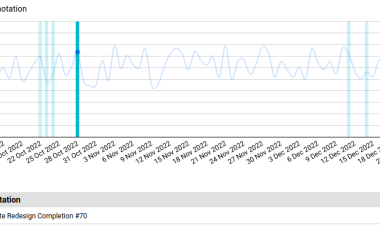Five Hacks for Digital Agencies to Catalyse Their Profits
The unlimited scope of digitalisation of our world is turning heads all around. Agencies and companies alike are always on the lookout for better ways to outrun the competition. Profit isn’t the only metric that you need to ascertain when deciding the fate of your digital marketing agency.
You may have tried different strategies that rendezvous at client attractions and giving them the best results. But, sometimes, all of it may not work. It is because scaling a business is more complex than launching one. The State of Inbound [1] found that Generating good traffic and credible leads are the biggest challenges 63% of Digital agencies face today.
Five Hacks to Help Your Digital Marketing Strategies Fruitful:
1. Making Business Development Activities Measurable by Using Tools
The 21st-century mantra is not the cube of hard work. Instead, this is the time when your work should be smart, productive and optimal. Knowing is half the battle won, and unless you know whether or not you are working in the right direction, everything you do will not substantiate.
At Zyxware Technologies, we use case studies of successful results to know what works and what does not. RSW/US [2] has found that 62% of digital marketing agencies use case studies to measure their performance and generate new leads.
Data is the new oil! We use Google Data Studio to club all our client’s campaigns into one place and measure our performance. Similarly, you can also use Databox for this purpose.
These are the tools that will help you retrospect your strategies and enhance your learning curve. Tools like these have segmented data sets according to different 'Key Performing Indicators (KPIs).' You can set the data as per your desired KPI and then analyse your performance. Ultimately, the goal is to know Where you are performing better, and from here, you can figure out the Why aspect.
Further, when it comes to scrutinising our performance (be it for our campaigns or clients). These tools have helped us pinpoint the lackadaisical areas. However, the digital domain is a learning process, and we have not been able to use one strategy for all the clients. The reason being, the target audience is different for all sorts of products. Thus, the strategy shall also differ from each other.
2. Intuition vs Data-Driven Decision Making:
“I have got a gut feeling” can be a risky proposition in the digital marketing world. Data has to be the main driving force that should lead you to decision making.
An MIT Sloan Review article [3] does say that high-level executives and managers rely on their gut feeling under duress and make decisions. But, the difference between a high-level executive making a decision and a digital agency strategist is the gaping void of experience.
At Zyxware, we always work by the numbers. Since our audience comes from a vast pool of different choices, numbers make it easy to authenticate the next steps.
Intuitions are best kept for decisions that are more skewed towards a vague approach.
And if one thing that you need to learn as a patron of the digital world, vagueness is not the key to success.
Think it over; you are at that level of decision-making where your mindset and approach have to have the power to influence, convince, or even manipulate the target into taking action. And it is not that you are targeting one person. There are hundreds of thousands of possible leads, and not all of them will have the same mindset.
But when it comes to data, you will be the closest to all of them because, with data, your decision will be characterised by what the leads are interested in.
Leverage the power of Artificial Intelligence to know what your clients like and what the client’s customer wants. Google is already using AI [4] in its DoubleClick Bid platform and helping the users scrutinise the performance of the campaign based on selected KPI’s.
All in all, it is here that you can make a real difference and perform better than your competitors. The reason? You are following a data-driven decision-making pattern.
3. Automation of Processes:
'Social Media Today' has found that 75% of marketers use Automation tools in 2019’s State of Marketing Automation Survey Report [5]. Today, digital agencies use automated sequences for emails, social media, and even ad campaign decisions.
According to HubSpot, [6] Marketing Automation is not about setting preferences for the machine to follow along. But it is a process that you need to farmer along with strategy and software.
Think of it as a relationship-building tool, which means that the end customer holds the central place in this process. Everything has to revolve around the customer itself. Use them to set dedicated preferences, to nurture existing relationships with the client’s customers.
Not only in decision making, but automation will also make your work efficient. With the variables and preferences set, you can focus on other important matters than tracking the campaigns individually.
A fantastic example of automation is related to the trading industry. The data analysts have set the benchmark figures, and when the value of a particular aspect reaches there, a message is relayed to the users. It streamlines the work of the data analyst and makes decision making much easier.
Marketing automation is also known to reduce overall costs. It will make you more productive and ensure project delivery. In all, it will pave the way for better profits at the end of the funnel.
4. Outsourcing vs In-House Capability Building
Let’s start by knowing about your end motive. Every digital agency needs to increase its reputation and gain more profits. So, how can you do that?
What kind of team do you need to hire who will get the work done and at what cost?
Both an in-house team and an outsourced team have their respective pros and cons.
You need to understand that your strategy will only be as good as the people working on it. And marketing is all about giving consistent results. You need to hire competent and creative people who can aptly understand the client requirements and then strategise accordingly.
Digital Marketing is not the job for ‘by-the-book’ people.
And when it comes to deciding between an in-house team or an outsourced one, both of them have their pros and cons. Where an in-house team can better resonate with your company’s motives and values, an outsourced team will only know as much as they are told and learn about the client. They are unaware of what your company is about.
It will take some time, effort and monetary resources to hire the best in-house team. Whereas selecting an outsourcing team is much simpler and straightforward. You only need to hire someone who is an expert in what your client wants.
Moreover, there is diversity in an outsourced team.
The only thing you will need with such a team is to communicate with the sales team well. Besides this, they should be diligent in their work, give timely responses and meet deadlines.
But, if you have an in-house team, you will not need to dabble with all these aspects. They will be sitting in the office and working for your clients. For that, you will need to provide them with office space and spend more on other sundry expenses.
Where an in-house team will provide you with more value, an outsourced team is more inclined towards cost-optimisation.
So, what should you do?
Well, as per our experience, you can tailor your choices according to the requirements. Meaning, align your team with your purpose and objectives at the time being. Think over your business goals and think about hiring.
5. Project Planning Practices to Improve Efficiency and Reduce Risks
According to Forbes, the guys at digital agencies are not good project managers upfront. They can develop traits that entail good project management practices. But, that will need time and some extra effort.
Hence, it is all the more essential to adapt the best project planning practices for task management.
Imagine if you can combine your creative genius with some good project management practices. You will become a force to be reckoned with.
To do so, you need to learn the simple process of project management and planning. There are five stages to it, Initiating, Planning, Executing, Monitoring & Controlling and Closing.
And before you take on a project, identify its goals. It will make your project planning native to the result. Further, prioritise your goals, make a list for them, and know how to achieve them all.
At Zyxware, we consider ourselves as the end-user and know the audience better than the client itself. This way, we can resonate with audiences, form the strategies, and create content that is accepted and loved.
Conclusion:
In the end, it is imperative to ascertain that digital campaigns and strategies are a dynamic subject. It all depends on how you approach it. Considering profit maximisation as your end motive, you need to follow in the footsteps of such strategies that can help you achieve them. Tools, automation, and data will help you enhance and improve your performance. Hiring is effective, equally essential, and in the end, project management is akin to the cherry on your cake, which will only make your work easier and manageable.
References:
-
Hubspot.com. (2019). 2019 Marketing Statistics, Trends & Data — The Ultimate List of Digital Marketing Stats. [online] Available at: https://www.hubspot.com/marketing-statistics [Accessed 27 Aug. 2019].
-
Emarketer.com. (2019). Agencies Use Content, Case Studies to Generate Leads - eMarketer. [online] Available at: https://www.emarketer.com/Article/Agencies-Use-Content-Case-Studies-Generate-Leads/1010213 [Accessed 27 Aug. 2019].
-
Matzler, K., Bailom, F. and Mooradian, T. (2007). Intuitive Decision Making. [online] MIT Sloan Management Review. Available at: https://sloanreview.mit.edu/article/intuitive-decision-making/ [Accessed 27 Aug. 2019].
-
Porter, A. (2018). Council Post: The Impact Of Artificial Intelligence On The Future Of The Digital Agency. [online] Forbes.com. Available at: https://www.forbes.com/sites/forbesagencycouncil/2018/05/08/the-impact-of-artificial-intelligence-on-the-future-of-the-digital-agency/#62b8b19d7d63 [Accessed 27 Aug. 2019].
-
Hutchinson, A. (2019). SMT’s State of Marketing Automation Survey 2019 - Part 1: Current State of Automation. [online] Social Media Today. Available at: https://www.socialmediatoday.com/news/smts-state-of-marketing-automation-survey-2019-part-1-current-state-of/551755/ [Accessed 27 Aug. 2019].
-
Hubspot.com. (2019). HubSpot Marketing | What is Marketing automation?. [online] Available at: https://www.hubspot.com/marketing-automation-information [Accessed 27 Aug. 2019].
-
Abramovich, G. (2019). 15 Mind-Blowing Stats About Marketing Automation. [online] CMO.adobe.com. Available at: https://cmo.adobe.com/articles/2017/2/15-mind-blowing-stats-about-marketing-automation.html#gs.ylod3b [Accessed 27 Aug. 2019].
-
Gero, I. (2019). 7 Ways to Grow Your Digital Marketing Agency and Increase Profit. [online] Wave. Video Blog. Available at: https://wave.video/blog/7-ways-to-grow-digital-marketing-agency/ [Accessed 27 Aug. 2019].
-
Gero, I. (2018). 10 Tips to Grow Your Digital Marketing Agency (and Earn More Profit!). [online] ResellerClub Blog. Available at: https://blog.resellerclub.com/10-tips-to-grow-your-digital-marketing-agency-and-earn-more-profit/ [Accessed 27 Aug. 2019].
-
Oetting, J. (2016). 7 Ways to Dramatically Increase Your Agency’s Profits. [online] Blog.hubspot.com. Available at: https://blog.hubspot.com/agency/increase-agencys-profits [Accessed 27 Aug. 2019].
-
Roetzer, P. (2017). 15 Ways to Maximise Marketing Agency Profits. [online] MarketingAgencyInsider.com. Available at: https://www.marketingagencyinsider.com/blog/15-ways-to-maximize-marketing-agency-profits [Accessed 27 Aug. 2019]



